Isis: Five US mistakes which led to the rise of Islamic State
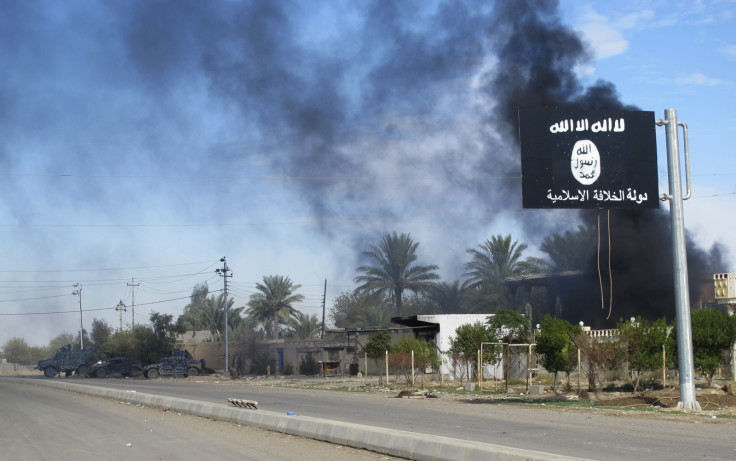
It is now a year since Islamic State militants seized Camp Speicher in Tikrit, Iraq, kidnapping 1,400 mostly Shia airforce recruits and brutally executing them.
Of the many atrocities that have marked the first year of the IS's self-declared caliphate, the massacre perhaps symbolises the catastrophic failings in US strategy in the region.
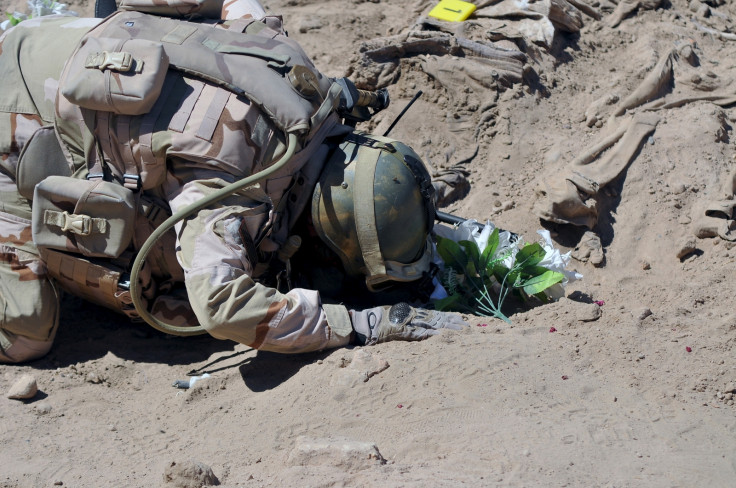
Built in the birthplace of ousted dictator Saddam Hussein, the huge former US army airbase was once a symbol of American efforts to install democracy in the region, but is now a mass graveyard, with 600 bodies exhumed at the site so far.
With the jihadist group now controlling territory larger than the size of Great Britain, and US elections looming, debate is centering on what the US could have done differently to prevent the group's rise and what should be done to defeat it.
Below, IBTimes UK examines some of the alleged US failings which have allowed Isis to secure control of a region larger than Great Britain.
De-Baathification
In order to ensure that Saddam loyalists had no stake in the new, democratic Iraq the US sought to create, thousands of members of Saddam Hussein's Baath party were expelled from the Iraqi army, government and intelligence agencies.
Out of work, humiliated, and resentful of perceived injustices against the Sunni minority in Iraq by the new Shia-dominated government, the Baathists were prime targets for recruitment by radical jihadists in Iraq, including Isis forerunner Al Qaeda in Iraq.
Camp Bucca
Established near the Kuwaiti border in the wake of the US invasion of Iraq, Camp Bucca housed thousands of Iraq's most radical jihadists.
Among the 100,000 who spent time in the prison before it closed in 2009, were nine of Islamic State's top commanders, including its leader Abu Bakr al Baghdadi. Experts believe that the time spent in Camp Bucca deepened the extremism of many of those detained, and offered them a unique opportunity to form connections with fellow radicals.
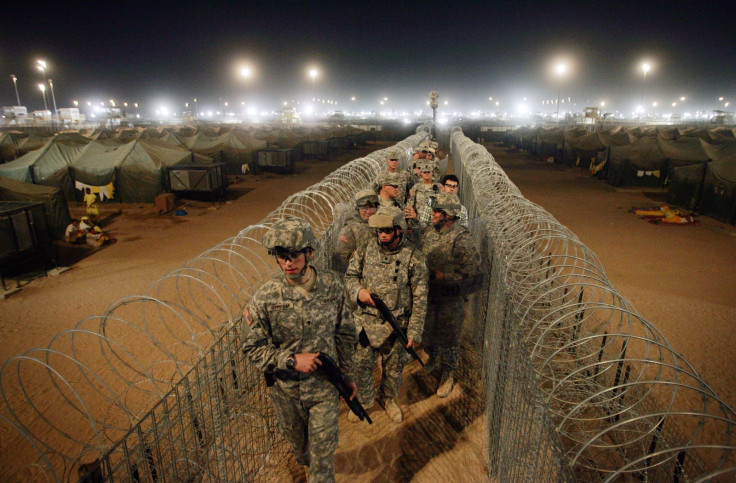
It is in the prison that two previously antipathetic groups, radical jihadists and Baath party hardliners, formed ties, with senior members of Saddam Hussein's army providing the military expertise which has allowed Isis to carve out its 'Caliphate', former intelligence officers providing knowledge of regional and local power brokers, and even knowledge of illicit smuggling routes used by Saddam Hussein's government to overcome international sanctions now used by Isis to smuggle oil.
"The prisons became virtual terrorist universities: the hardened radicals were the professors, the other detainees were the students, and the prison authorities played the role of absent custodian," wrote military veteran Andrew Thompson and academic Jeremi Suri in the New York Times.
Hasty Exit
In a recent book, former British diplomat Emma Sky, the governor of Kirkuk province, Iraq, during the US occupation lamented that there is "nothing to be seen for all the blood and treasure we had invested" in Iraq.
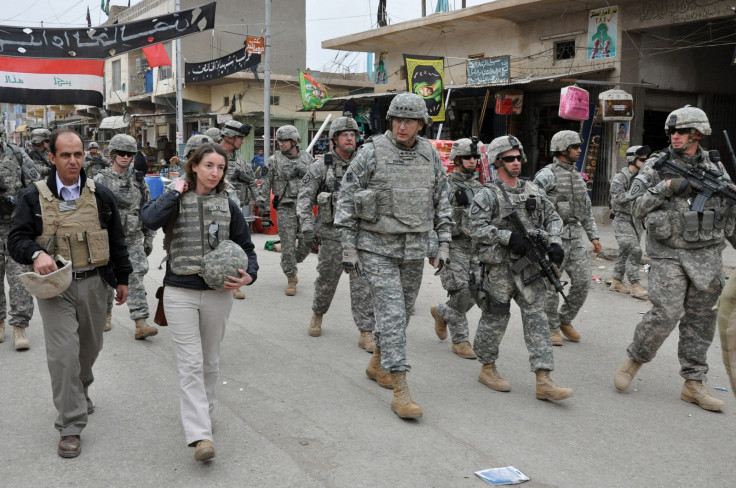
After the 2007 troop surge quelled escalating Sunni/Shia conflict, she describes how the hasty withdrawal from the country under new president Barack Obama, and the decision to hand power to divisive and authoritarian Shia Prime Minister Nouri al Maliki destabilised Iraq, fomenting sectarian divisions and hastening the country's collapse.
Maliki's failings boosted support for "extreme sectarian actors, including the Islamic State, [who turned] local grievances over poor governance into proxy wars," she writes in The Unravelling: High Hopes and Missed Opportunities in Iraq.
Arming Iraq
During its occupation of Iraq, the US spent billions arming, equipping and training the Iraqi army and police force it envisioned shouldering responsibility for the country's security after the US withdrew.
Shia officers who took control under al-Maliki turned part of the army into a vicious protection racket, alienating Sunnis and reducing the army's effectiveness as a fighting force.
When Isis swept through northern Iraq in June, 2013, the Iraqi army dissolved, with soldiers fleeing, abandoning equipment, weapons and even uniforms.
Iraqi Prime Minister Haider Al Abadi recently announced that 2,000 Humvees had been lost in Mosul alone. In March, more equipment was lost when the Iraqi army abandoned positions in Ramadi to a vastly inferior Isis force.
These weapons have been used by Isis against its foes on the battlefields of Iraq and Syria, with Humvees packed with explosives and turned into weapons for suicide bombers.
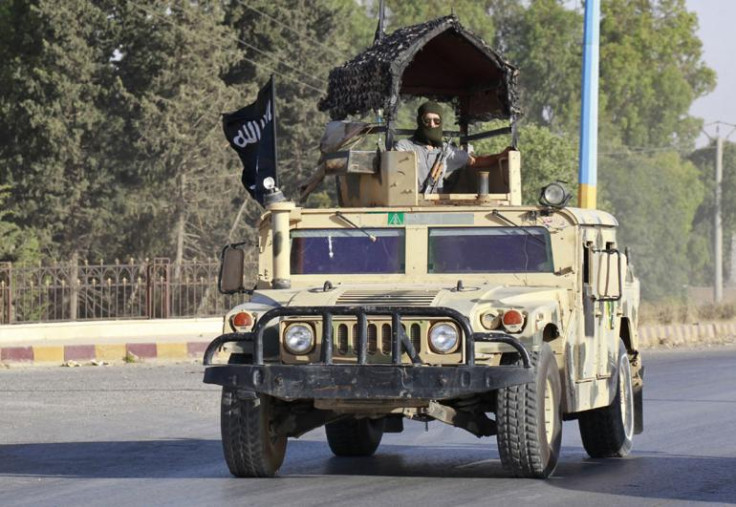
Intelligence Failings
US intelligence claims that in 2013, repeated warnings about the increased strength of jihadist groups in Syria fell on deaf ears, with the White House anxious to avoid becoming embroiled in another conflict in Iraq.
President Obama himself, in a TV interview last September, argued that intelligence agencies had failed to anticipate the meteoric rise of Isis.
What is certain is that the US was caught off guard, misjudging the scale of Isis' territorial ambitions and its military capacity.
"We were surprised by their regional ambitions, the speed of their advance into Mosul and the collapse of the Iraqi security forces," a senior US Army general with combat experience in Iraq told the New York Times on condition of anonymity.
As Islamic State rampaged through swaths of Iraq, threatening even the Iraqi capital Baghdad itself and massacring thousands of civilians, Obama was forced to act, ordering airstrikes against the group in September 2014 which dented the group's progress.
© Copyright IBTimes 2025. All rights reserved.






















